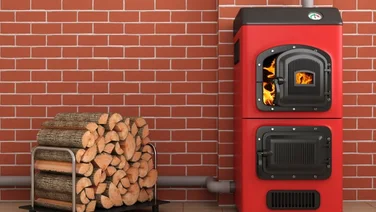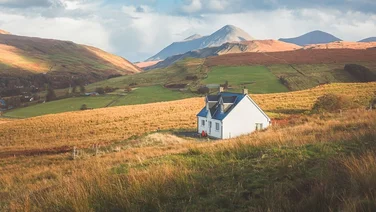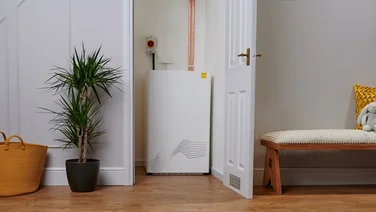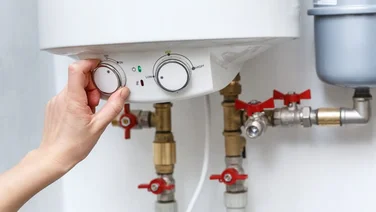We receive a small fee from trusted installers when you request a quote through our site. This helps us keep our content independent, well-researched and up to date – Learn more
- What are free boiler schemes?
- Free boiler grants and schemes in 2024
- ECO4: The government’s boiler replacement scheme
- Can I get a free boiler?
- Pros and cons of the ECO4 scheme
- Other government schemes which help with your energy bills
- Boiler schemes from companies
- Free boiler schemes which have expired (in memoriam)
- Summary
✔ The government’s ECO4 scheme can provide a free boiler and insulation
✔ Installing a new boiler could save you up to £380 per year
✔ Companies must replace around 5,000 boilers per year – for free
Disclaimer: Our webform is for requesting quotes to buy a boiler. It is not an application for a free boiler.
If you can’t bring yourself to fork out for the cost of a new boiler, you can always try and get one through the government’s free boiler scheme, ECO4.
The eco-friendly scheme helps people in England, Scotland, and Wales who live in fuel poverty or in the UK’s least energy-efficient homes.
Certain energy suppliers also offer help to customers in need, which you should absolutely access if you can.
If you don’t qualify for any of the schemes, you can still reduce your energy bills by purchasing a new boiler. Receive boiler quotes for free by completing this form.
What are free boiler schemes?
This term applies to any programme which helps people to obtain a free or heavily discounted boiler. They are usually only available to economically disadvantaged households.
The main example of this is the government’s Energy Companies Obligation scheme (ECO4), which makes companies legally responsible for providing homes with free or subsidised boilers and other heat-saving methods.
There are other schemes which aim to help the public meet their energy requirements, run by the companies themselves for their own customers. Here’s a comprehensive list of all the funds which may be available to you.
Free boiler grants and schemes in 2024
ECO4
British Gas Energy Trust
npower Energy Fund
ScottishPower Hardship Fund
OVO Energy Fund
E.ON Energy Fund
EDF Energy Customer Support Fund
SSE’s energy debt relief
ECO4: The government’s boiler replacement scheme
The ECO4 scheme helps homeowners or tenants on a low income, or those claiming certain benefits, to make their property more energy-efficient.
Between April 2022 and March 2026, companies with at least 150,000 customers are compelled to repair or replace inefficient heating systems with superior eco-friendly models, provide smart heating controls, and install solid wall insulation.
However, while ECO3 put 134,000 free boilers in UK homes, ECO4 will only compel suppliers to carry out 5,000 boiler replacements per year – at most.
Suppliers will also only repair a maximum of 5,000 boilers per year, and will no longer install free LPG or oil boilers, though they are able to repair broken machines under the scheme.
Instead, the focus is on improving households’ EPC ratings. The government is aiming for 150,000 homes to benefit from this move.
Band F and G homes – the lowest rated – must be improved to at least a D rating, while D and E houses must reach at least a C rating.
Suppliers must also install solid wall insulation in 90,000 homes over the course of the scheme. This figure should be higher, but is consistent with the government’s inadequate response to climate change and rising energy bills.
The government has also removed disability benefits from its list of valid benefits, meaning 400,000 homes are suddenly ineligible for the ECO scheme.
The government has said “these households, if they are low-income, could be supported under an expanded and reformed ECO4 Flex” – but this part of the scheme is entirely voluntary.
That means suppliers, local authorities, and governments in Scotland and Wales aren’t compelled to dip into the £2 billion fund to help households. At best, this raises the prospect of a postcode lottery.
Since ECO was launched in 2013, it’s improved 2.4 million homes, at a rate of 267,000 per year.
The government is aiming for 450,000 more homes to be improved under the four-year-long ECO4 – which means helping 58% fewer homes per year than before.
Can I get a free boiler?
Yes, you can absolutely get a free boiler through ECO4 – as long as you fulfil the conditions, which are designed to help the people who need it most.
If you’re not one of those people, no problem. You can profit from getting a new boiler regardless, and save hundreds of pounds over the lifespan of your machine.
Just fill in this form to get a free boiler quote from trusted experts.
How do I qualify?
You can qualify for help through ECO4 if you receive any of the following:
- Income based Jobseekers allowance (JSA)
- Income related Employment & Support Allowance (ESA)
- Income Support (IS)
- Pension Credit Guarantee Credit
- Working Tax Credit (WTC)
- Child Tax Credits (CTC)
- Universal Credit (UC)
- Housing Benefit (new eligible benefit under ECO4)
- Pension Credit Savings Credit (new eligible benefit under ECO4)
Benefits which no longer qualify
You now won’t be able to automatically qualify for ECO4 with these benefits:
- Armed Forces Independence Payment
- Attendance Allowance
- Carer’s Allowance
- Constant Attendance Allowance
- Disability Living Allowance
- Industrial Injuries Disablement Benefit
- Personal Independence Payment
- Severe Disablement Allowance
- War Pensions Mobility Supplement
However, you may still be able to access ECO4.
Contact your council and ask for their help, as 50% of the scheme’s £4 billion in funding will be available to local authorities, suppliers, and the Scottish and Welsh governments to use on households suffering from fuel poverty.
Who supplies the free boilers?
An energy company will supply your new boiler.
Once a company has attracted enough customers and supplies them with more than a certain level of electricity and/or gas, the company is made to enter into the ECO4 scheme.
Companies are then compelled to supply people with new boilers – either for free or for a reduced price – until they meet their target.
Suppliers included in ECO4:
- British Gas
- Bulb
- E Ltd
- E.ON Energy (including Npower)
- Ecotricity
- EDF Energy
- ESB Energy
- Octopus Energy
- Outfox the Market
- OVO (Including SSE)
- Scottish Power
- Shell Energy
- So Energy
- The Co-operative Energy
- The Utility Warehouse
- Utilita Energy Ltd
Are there penalties for missing free boiler scheme targets?
Yes. Ofgem’s Michelle Amos told The Eco Experts: “We can impose financial penalties of up to 10% of a licensee’s turnover.”
She added that Ofgem can “make consumer redress orders and issue provisional/final orders for breaches of relevant conditions and requirements under the Gas Act 1986 and the Electricity Act 1989.”
And Amos pointed out that Ofgem fined Utilita £175,000 in 2019 for actions that would’ve deprived consumers of £30,000 in energy savings.
The money went straight into the Energy Redress scheme, a fund controlled by the Energy Saving Trust which gives charities money to help economically disadvantaged people meet their energy needs.
Pros and cons of the ECO4 scheme
| Pros | Cons |
|---|---|
| Will help improve up to 450,000 energy-inefficient homes | This represents 0.5% of all British homes – a drop in the ocean |
| May help people in fuel poverty | Will install up to 20,000 gas boilers, which still speed up climate change |
| Forces companies to comply | Recipients of 9 benefits, including many disability allowances, no longer qualify |
| If companies miss their targets, they pay a fine to a fund created to help customers | Half of the scheme’s £4 billion fund doesn’t have to be used |
| Easy to see if you’re eligible | Only compels suppliers to install insulation in 90,000 homes |
Other government schemes which help with your energy bills
Winter Fuel Payment
You can get between £100 and £300 towards your heating bills if you were born on or before 26 September 1955, and receive a State Pension or certain other benefits.
Usually, you’ll receive your Winter Fuel Payment automatically – but if you think you’re eligible and have been missing out, you can also apply manually.
Cold Weather Payment
The government may give you £25 for each period of seven consecutive days that are 0°C or below between the start of November and the end of March.
Claim now if you receive any of the following:
- Income Support
- Income-based Jobseeker’s Allowance
- Income-related Employment and Support Allowance
- Pension Credit
- Support for Mortgage Interest
- Universal Credit
Warm Home Discount scheme
You may also qualify for a one-off £150 discount on your electricity bill between October and March.
If you live in a low-income home, contact your supplier to find out if you’re eligible.
If you’re a pensioner, you may get a letter between October and December telling you how to get the discount. If it doesn’t arrive by the end of December, contact the Warm Home Discount helpline on 0800 731 0214.
This discount doesn’t affect your ability to receive a Cold Weather Payment or Winter Fuel Payment.
If you would rather get money off your gas bill, you can do so, as long as the same company supplies you with gas and electricity. Just contact your supplier.
Affordable Warmth Obligation scheme (AWO)
It’s also worth mentioning the AWO, which you may encounter while looking for ways to save on your energy bills. Don’t be confused – it’s been folded into the ECO scheme.
Before 2018, ECO had two parts: an obligation to provide warmth to underprivileged homes (the AWO), and the Carbon Emissions Reduction Obligation (CERO), which did what it said on the tin.
Unfortunately, come 2018, the government dropped CERO from the programme, and made ECO entirely focused on providing affordable warmth – so they’re now one and the same thing.
Boiler schemes from companies
Companies don’t always need to be prompted by the government – sometimes, they’re capable of helping customers without any obligation.
So depending on your energy supplier, you might be able to get help in other ways than ECO. Sometimes, you don’t even have to be a customer with that company!
British Gas
The British Gas Energy Trust funds organisations which give people advice on how to tackle fuel debt and other financial issues.
And, regardless of whether you’re a British Gas customer or not, the trust may be able to award you with grants to clear your electricity or gas debts.
To qualify for help, you must:
- Receive money advice before applying
- Have a net income below £13,260 per year
- Demonstrate vulnerabilities/exceptional vulnerabilities within the household
npower
The npower Energy Fund helps npower customers who are struggling with their energy debt, or relying on old, broken-down machines.
If your application to the fund is successful, npower can clear all of your debts, or buy you a new white good – that is, a cooker, fridge, fridge-freezer, or washing machine.
But it comes with a catch: if npower decides to give you some money or replace your device, you won’t receive it for three months.
During that period, your debt will be suspended, but you’ll have to prove you deserve the award by paying three months of energy bills – otherwise npower won’t give you your grant.
On its website, the energy company explains that paying for three months of energy allows applicants who have won a grant to “demonstrate their commitment to achieving financial sustainability”.
ScottishPower
The ScottishPower Hardship Fund provides assistance to current or recent customers who are struggling with energy debt because they have low household income.
Along with your application, you must supply ScottishPower with:
- A meter reading taken on or close to the date of your application
- Evidence of your income from some time in the past three months
- Proof that you’ve received advice on your finances or debt from a recognised agency like National Debtline, Citizens Advice, or StepChange Debt Charity
The company will then typically clear 65% of your energy debt.
OVO Energy
The OVO Energy Fund offers one-off payments of varying levels for customers who need to get out of energy debt.
You can apply if:
- You’re a current or previous OVO Energy customer
- You have a gas or electricity debt of at least £150
- You have an annual household income of £16,190 or less
- You have a “valid reason” – for instance, being a pensioner, receiving disability allowance, or having a terminal illness
“Whether you are or aren’t eligible, please call us on 0800 0699 831 if you’re having money troubles … If you’re in debt, we can work out a payment plan together.”
– OVO Energy
E.ON
The E.ON Energy Fund may be able to help you with paying all of your current or final E.ON bills, and could repair or replace your white goods or boiler for you.
You need to be at least £50 in debt to apply for the fund to clear your debt.
When you apply, provide evidence of your:
- Financial stability
- Willingness to pay your energy bills
- Benefits, medical conditions, or pensions, if any of these apply to you
- Correspondence with the FCA-approved agency which has given you financial advice within the past four weeks, on company-headed paper
- Household income for the current tax year
EDF
The EDF Energy Customer Support Fund helps EDF customers to pay off domestic gas and/or electricity debts.
It also offers grants that allow you to buy energy-efficient white goods such as cookers, refrigerators, and washing machines, and can also pay for a new, free boiler. It all depends on your circumstances.
An EDF representative told The Eco Experts that the criteria for receiving assistance were similar to those of other companies, so be prepared to provide your information about your:
- Health
- Pension
- Benefits
- Household income
SSE
Call 0345 026 2658 if you’re an SSE customer who’s having trouble paying a bill.
An SSE representative told The Eco Experts that the company provides energy debt relief and pays for customers’ white goods during “key points of the year.”
This is great, but it does mean assistance isn’t available all the time.
SSE can help you by:
- Spreading your debt across multiple repayments
- Installing a free energy meter
- Allowing you to pay for your energy debt with your benefits, as long as you receive one of the following: income-based Jobseeker’s Allowance, income-related Employment and Support Allowance, Income Support, Pension Credit, or Universal Credit
Free boiler schemes which have expired (in memoriam)
If you’re confused about the absence of your favourite free boiler scheme from this page, we may have bad news for you.
Here are the schemes which have unfortunately fallen by the wayside over the past few years.
Boiler scrappage scheme
This government-run programme gave a voucher for £400 to households that were willing to trade in their extremely inefficient boiler for a high quality model.
It was open to the roughly 125,000 homes that had a boiler with a G rating or lower, and was a wild success after it launched in 2010, with all the vouchers claimed in just a few months.
With its purpose served, there was no reason for it to continue.
The other ECO schemes
Like Manchester City, the monarchy, or your local Time Lord, ECO has gone through several iterations. Here are the key stages.
ECO1
During the first version of ECO, from January 2013 to March 2015, big energy companies were required to help meet targets which saved money and reduced carbon emissions.
They managed to exceed these aims, saving 28.2 metric tonnes of CO2 and £5.16bn in energy costs.
ECO2
From April 2015 to March 2017, we were graced with ECO2, which raised ambitions for the environment and the consumer.
The government extended this part of the programme until September 2018, dubbing the new period ECO2t.
In 2019, Ofgem revealed Utilita, npower, and Extra Energy (which shut down in 2018) had failed to meet all their obligations.
The scheme was still a success though, saving 27.4 metric tonnes of CO2 and £6.89bn in customer savings.
ECO3
From April 2018 to March 2022, ECO3 compelled suppliers to offer free boilers, electric heating systems, and district heating connections, as well as cavity wall, loft, roof, underfloor, and solid wall insulation.
896,000 home improvement measures were approved by Ofgem under the £2 billion scheme, including more than 200,000 new boilers – but we know that only 134,000 were actually installed.
ECO3 was intended to save consumers £8.25 billion in the long run. When the results are published in October, we’ll find out exactly how successful this scheme was.
Summary
Large energy companies must help people all over the UK to access free boilers and solid wall insulation – and your local council should be able to help you as well.
If you qualify for ECO4 or any of the suppliers’ schemes listed above, you should absolutely take advantage, and get the help you deserve.
If you don’t qualify, you can still save plenty of money by completing this form so you can receive free boiler quotes from local specialists.









